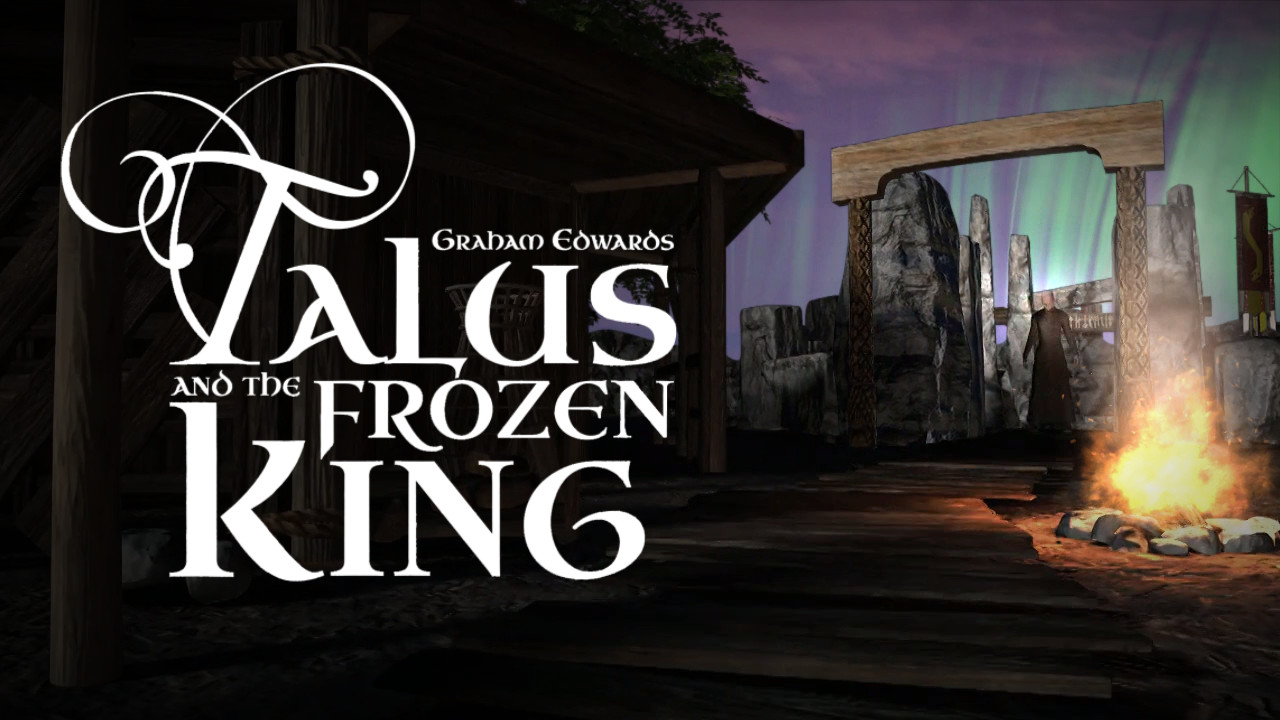
Exactly ten years ago, in 2014, Solaris Books published my Neolithic murder mystery Talus and the Frozen King. The novel introduces wandering bard Talus, whose knack for storytelling makes him perfectly qualified to become the world’s first detective.
With the help of Bran, his rough-and-ready companion, Talus attempts to unravel the mystery behind the murder of Hashath, warrior-king of the remote island settlement of Creyak. Nobody is above suspicion, from the king’s six grieving sons to the tribal shaman, from the servant woman steeped in herb-lore to the visiting warlord whose unexpected arrival throws the whole tribe into confusion. And when death strikes again, Talus and Bran realise nothing is what it seems …
To celebrate this tenth anniversary, I’ve dusted off an essay I wrote shortly after Talus and the Frozen King was published. I’m reproducing it here for the first time since its original appearance on the now-defunct website Upcoming4.me.
The Story Behind Talus and the Frozen King
“A stone-age Sherlock.” It seemed like a good idea at the time. A cute concept for a novel that would riff on the well-established conventions of the detective genre. And an opportunity to exploit the natural mismatch between our modern perceptions of what crime is, and the very different world-view of our ancient ancestors.
If only I’d known how hard it was going to be.
For a start, how do you write about a detective in an age when there almost certainly were no detectives? Fortunately, I’m not the first person to have written a murder mystery set in the past. In The Name of the Rose, Umberto Eco’s investigator is a Franciscan friar, while in Aliette de Bodard’s Servant of the Underworld, it’s an Aztec priest who chases down the clues.
These and other examples gave me the confidence to throw the whole concept of “detective” out of the window altogether and focus instead on what characteristics might lead a person to solve crimes. Curiosity was one. A fascination with what makes people tick was another. After much debate, I finally hit on the solution: my detective would be a bard.
Once made, it seemed an obvious choice. The wandering bard is an archetype of the ancient world, a character simultaneously intimate with yet aloof from the communities he visits. In other words, perfect for my needs.
The other big challenge concerned the crime itself. I wanted the book to be about a murder – perhaps a series of them – but how would a Neolithic society have regarded unlawful killing? Would the word “unlawful” even have been in their vocabulary? Even if they acknowledged the crime, what would have been their approach to punishment?
My solution was to imagine a society in which punishment is deferred to the afterlife. If you kill a man in this world, no retribution is needed – you’ll get your just desserts when you yourself are dead. Connecting the concept of crime to a spirit world seemed right for the story … and it also got me thinking. What if you killed someone who was considered to be more than just a man? Someone who was the conduit to the ancestral spirits of an entire tribe? Could there be a murder more foul?
What if you killed a Neolithic king?
These are the basic mechanics on which Talus and the Frozen King operates. But stories aren’t machines. As soon as you start writing them, they take on a life of their own. As much as this book was inspired by Sir Arthur Conan Doyle’s most famous creation (and yes, it does wear its heart prominently on its sleeve), nevertheless Talus is not Holmes. How can he be? He’s a man from a different time, with different drives and dreams. The minute I started writing Talus and the Frozen King, I tried to forget about genre and homage and set my mind instead to the most important thing of all: character.
That’s why, although Talus and the Frozen King began with a cute concept, the book I ended up with was somewhat different to the simple story I’d imagined. Right now, I’m working on a sequel, and in doing so I find myself stepping even further out from beneath the shadow of Sherlock. Talus has a long way yet to wander, and many sights yet to see. One day, he might reach the end of his journey.
By the time he does, I may know who he really is.
Yes, the essay mentions a sequel. “So, what happened to it?” you may ask. “Here we are ten years on and Talus hasn’t had a sniff at another crime.”
It’s a fair question. My answer is simple. That original sequel didn’t work. After much hand-wringing, I realised the story I’d planned took Talus off in completely the wrong direction. Ten years on I can see that more clearly than ever.
The good news is that I know the direction Talus does need to go in. Will he be going there any time soon? In short, will I ever write another novel about the world’s first detective?
Watch this space!

